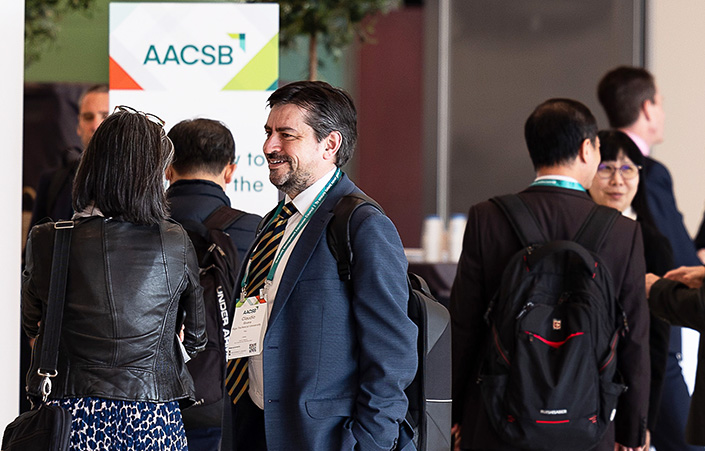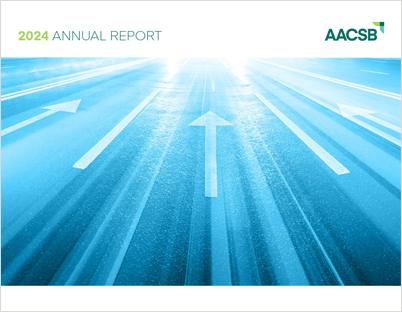It’s Up to Us to Shape the Future
How has the pandemic crisis changed us? How will managers and firms behave post-COVID-19? Will they permanently change the way they operate or the way they work? As a business school professor, I must think about, research, and, most important, teach students to consider these types of questions. A lot has been said about how COVID-19 will change our lives forever. But will it really happen?
In the short term, the answer to that question is no: There is no such thing as an immediate post-COVID world. Surely, firms will adjust their practices and hire workers with more digitally friendly, adaptive, and resilient profiles. But they will not manage their assets or their systems differently. The fabric that weaves together governance principles with market demands will remain unchanged; firms still will be compelled to follow the same rules and procedures. The business ethos prevalent before COVID-19 will prevail in its aftermath.
Does this mean that there are no lessons to be learned? That businesses and business schools can carry on as usual?
Again, the answer is no: The current crisis has opened doors for organizations of all types to adopt more effective and more responsible business practices. It is up to us, as scholars and teachers, to study those learnings and help disseminate them to our students.
Lesson No. 1: The Context for Business Has Changed
The first lesson is that our understanding of what constitutes a “business opportunity” will need to change, as markets adapt to our new needs and tastes. Our desire to work from home, our attitudes about what we share on social media, and our increasing attention to the environment are already shaping the products and services that we are buying as consumers.
And while certain principles of business, such as leveraging debt and pursuing returns on equity, are immutable, firms will need to adjust many of their objectives and practices. For example, they will need to become more environmentally and socially responsible, which will drive them to design new organizational structures and value different types of performance indicators. Most notably, organizations will begin accounting for their environmental impact (such as their carbon emissions, primary resource consumption, and water use) and their social impact (such as the local jobs they created, the way they manage and promote diversity, and the salary and benefit conditions they offer employees).
The flip side of the COVID-19 crisis is that many graduates will be better equipped to deal with uncertainty. They will link a successful career trajectory to aspects that go beyond career or salary progression.
As business educators, we’ll need to train students not only in applying business fundamentals, but also in becoming better at “reading” the business contexts in which those fundamentals are deployed. To help students master the latter skill, academics will need to incorporate content from fields such as artificial intelligence, business analytics, and impact measurement into their teaching—fields that will provide students with the data they’ll need to understand the markets and the world around them.
Lesson No. 2: Definitions of Success Have Changed
The second lesson is that the COVID-19 crisis is going to massively shake up the labor market. Much like the 2008 financial crisis, which forced many people to reorient their careers, a post-COVID-19 world will trigger powerful swings in the job market. Unfortunately, this means that the graduates of 2020 and 2021 could be forced to take the jobs that are available, not the ones that they trained for or dreamed of.
The flip side of this crisis, however, is that many of these graduates—and the managers who hire them—will be better equipped to deal with uncertainty. They will link a successful career trajectory to aspects that go beyond career or salary progression. Employees will be more likely to define job fulfillment in more profound ways; they will measure their success by the social or environmental impact of their activities. Managers will be encouraged to create jobs that offer employees opportunities to find purpose.
As a result of these changes, a new breed of entrepreneurs and businesspeople will emerge—and they will bring with them a desire to make the world radically different in positive ways. Some of them will aim to change the organizations where they work, while others will leave those organizations and start new ventures. Some will even question the validity of current business structures.
Lesson No. 3: The Boundaries of Business Have Broadened
In a post-COVID context, business schools will need to understand and help shape students’ ambitions into new skills and viable business solutions. For example, schools can teach people to link management knowledge with other sciences, from physics and biology to data analytics and computer sciences.
Professors also will need to help business students delve deeply into their beliefs and question the validity of established business rules or practices. In this way, students will be better able to establish alternative legal requirements for business. They will design different business norms and come up with new solutions to business problems.
Professors will need to help business students delve deeply into their beliefs and question the validity of established business rules or practices.
For example, our students might help design new laws that make companies legally obligated to pursue noneconomic objectives to serve society. We already have seen the creation of the Public Benefit Corporation (or B Corp) in the U.S. and Société à mission in France. Since the French government passed this law in May 2019, 100 firms have been established under Société à mission status, including the food and beverage giant Danone.
Business Schools as Bridges
In this respect, business schools are core actors that can help the business world bridge the before and after of COVID-19. By training students to manage the changes described above, schools can help businesses shorten their transition period between short-term and long-term changes.
That’s what we have aimed to do at HEC Paris, where our Society and Organizations Institute has developed hundreds of hours of content and courses that put sustainability and purposeful leadership at center stage. We make sure that our students confront the new realities of business firsthand through activities such as strategic projects with NGOs, boot camps with partner firms, compulsory courses on sustainable finance, and trips to the Alps where they can see the impacts of climate change.
In other words, we are working to produce the human capital that businesses and the global economy will need to thrive in a post-COVID world. I believe that if business schools take seriously the grand challenges that we all face, they can help produce a new breed of leaders who will assemble a broader range of relevant stakeholders around boardroom tables. These leaders will preserve the economic efficiency of firms, while accounting for the impact of those firms’ activities, whether that impact is negative or positive.
Even though the pandemic has presented more challenges than we could have imagined, business schools can help businesses emerge stronger than before. So, there is hope, after all!





